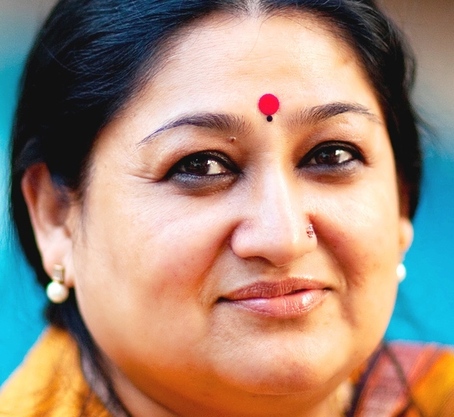She performed at Bangalore on December 11 in a concert along with members of Indian Ocean to mark two decades of India Foundation for the Arts’ (IFA) work in the field of nurturing and funding artistic projects. The Padma Shree awardee has been IFA’s trustee for some time and in an interview spoke about her life in music and more. She recently worked with Aneesh and theatre legend Sunil Shanbag on providing the narrative structure to a project where theatre and music came together in an indivisible whole. The collaboration, Stories in a Song recently played at the Ranga Shankara festival.
And all the experimentation that she ventures into? Answers she, “As for experimenting with other forms of music, I think there is a lot more of that happening in current times than there was fifteen years ago, when Ab Ke Sawan was recorded. However, the mainstream music industry in India no longer commissions and publishes music of this nature, and as a result, neither is their PR machinery put to use to promote and publicise albums. But music lovers today can find and access experimental music on the Internet and on viral video platforms like Balcony TV, or audio distributors like OKListen.com to name only a few. ”
**
She has always believed that the arts are meant to be a confluence of cultures beyond politics but an unsavoury incident in the US when she was attacked for voicing a political opinion has left her maybe a bit, disillusioned. She says, “We do seem to be turning into an increasingly intolerant society that does its best to snuff out any dissenting voices. For one of the most mammoth democracies in the world, this is a matter of concern, but I also accept that I seem to be part of a steadily shrinking group of people who share my concerns. “
Always an individualistic artist who when asked which gharana she belonged to, had famously reacted,”My own,” Mudgal attributes her fearlessness to her roots. She says, “I grew up in a home with very strong, independent, and fearless women including my mother and maternal grandmother. The men in my family were equally strong and fearless individuals, but were also deeply respectful of women.That I inherit some of their independent spirit is therefore, not surprising at all. ”
**
About the current music scene, she says, “I think we have become very comfortable being a musical mono-culture and to a large extent we are no longer interested in musical diversity and varied musical expressions and genres.I am working on several interesting projects, but it would be premature to start talking about any of them at this point.”
And the one thing life has taught her? She quips, “That there is always more music to learn and more music to enjoy!”
**
Reema Moudgil works for The New Indian Express, Bangalore, is the author of Perfect Eight, the editor of Chicken Soup for the Soul-Indian Women, an artist, a former RJ and a mother. She dreams of a cottage of her own that opens to a garden and where she can write more books, paint, listen to music and just be.







 with
with